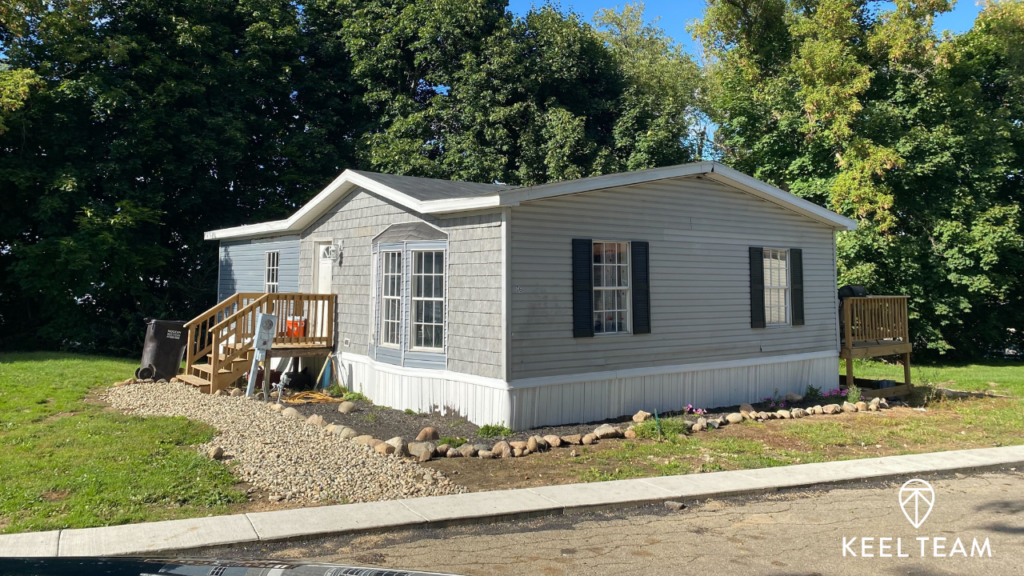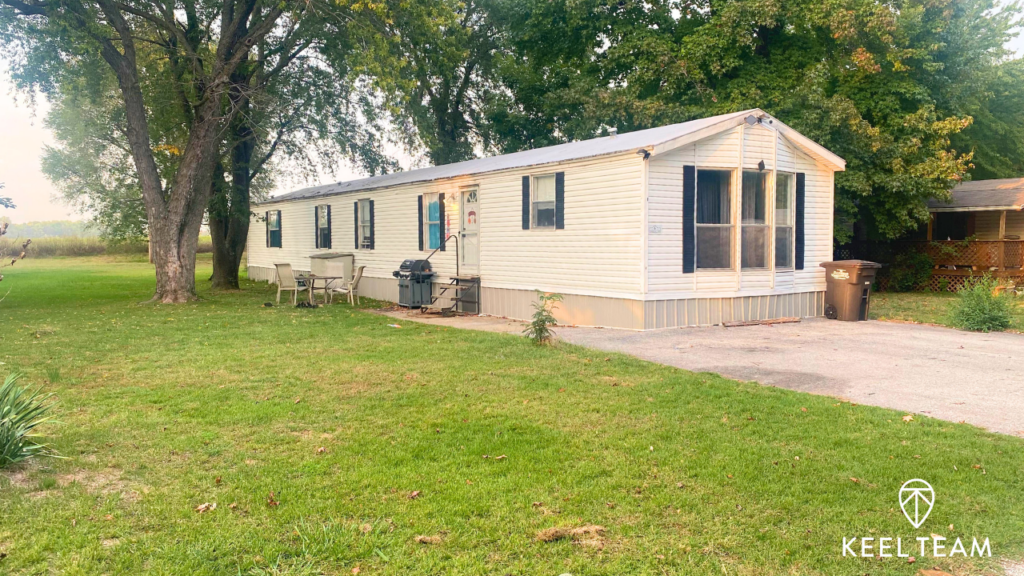Demystifying Mobile Home Park Syndications: Key Investor Insights
-
 Tristan Hunter - Investor Relations
Tristan Hunter - Investor Relations

Investing in mobile home parks through syndications can feel overwhelming for first-time investors. With so many industry terms and structures to understand, knowing where to begin may not be obvious. This guide addresses common questions about mobile home park syndications, simplifying key concepts like cap rates, cash-on-cash returns, and syndication structures.
Mobile home park syndications offer a way for multiple investors to pool their resources. This approach allows individuals to invest in larger properties than they might afford on their own. By breaking down complex terms and processes, this article aims to provide clarity for potential investors.
What is a Mobile Home Park Syndication?
A syndication is a partnership between multiple investors who collectively purchase and manage a property. In mobile home park syndications, there are typically two roles: general partners (GPs) and limited partners (LPs).
- General partners, also known as operators, oversee the investment. They manage day-to-day operations, handle finances, and make strategic decisions.
- Limited partners are passive investors. They contribute capital but typically have minimal involvement in managing the mobile home park.
This structure allows limited partners to likely benefit from the expertise of experienced operators while enjoying passive income potential.
What are Cap Rates, and Why Do They Matter?
The capitalization rate, or cap rate, measures a property’s potential return based on its income. It is calculated by dividing the property’s net operating income (NOI) by its purchase price.
For example, if a mobile home park generates $100,000 in NOI and costs $1,000,000 to buy, the cap rate is 10%.
Cap rates vary depending on the property’s location, condition, and market demand. Higher cap rates may indicate higher risk, while lower cap rates often reflect properties in desirable locations.
Cap rates help investors evaluate whether a property aligns with their return goals. However, they are just one factor to consider.
What is Cash-on-Cash Return?
Cash-on-cash return measures the annual return on the cash you invest. It is calculated by dividing the annual cash flow by the total cash investment.
For example, if you invest $50,000 in a mobile home park and receive $5,000 in annual cash flow, your cash-on-cash return is 10%.
This metric is useful for understanding the immediate returns from an investment. Unlike cap rates, it considers the financing structure, making it more relevant for investors focused on cash flow.
Download our FREE eBook on the Top 20 things to know BEFORE investing in mobile home parks!
How are Returns Distributed in a Syndication?
Mobile home park syndications typically distribute returns based on the agreed-upon structure. Common distribution methods include:
- Preferred Returns: Limited partners receive a set percentage of returns before general partners earn any profits.
- Profit Splits: Once preferred returns are met, remaining profits are split between general and limited partners.
These structures aim to align incentives between both parties, aiming to ensure everyone benefits when the property performs well.
What Does Due Diligence Involve?
Due diligence refers to the research and analysis performed before acquiring a mobile home park. It helps investors identify potential risks and ensure the property aligns with their goals.
Key steps in due diligence include:
- Reviewing financial records, such as rent rolls and expense reports.
- Inspecting the property’s infrastructure, including water, sewer, and electrical systems.
- Evaluating the market to understand tenant demand and local regulations.
Thorough due diligence can help avoid surprises after the purchase.

What Are the Typical Advantages of Investing in Mobile Home Park Syndications?
Mobile home park syndications offer several advantages for investors:
- Passive Income: Limited partners can earn income without managing the property.
- Access to Expertise: Experienced operators usually handle operations, often reducing risks for passive investors.
- Diversification: Syndications typically allow investors to diversify by participating in multiple properties.
These common benefits make syndications appealing to individuals seeking lower-effort investments.
What Are the Risks Involved?
Like any investment, mobile home park syndications carry risks. Common risks include:
- Market Fluctuations: Changes in local economies or regulations may impact performance.
- Operational Challenges: Issues like high turnover or unexpected repairs can affect profitability potential.
- Illiquidity: Syndications often require a multi-year commitment, limiting your ability to withdraw funds early.
Partnering with experienced operators may help mitigate these risks.
How Do Syndications Compare to Direct Ownership?
Direct ownership involves buying and managing a mobile home park independently. This approach offers full control but requires significant time and expertise.
Syndications, on the other hand, allow investors to participate passively. The trade-off is less control over decision-making. Both options have merits, depending on your investment goals and experience.
How Do I Get Started with a Syndication?
Starting with mobile home park syndications involves several steps:
- Research Operators: Look for experienced operators with a proven track record. Request references and review past deals.
- Assess Your Finances: Determine how much you can invest and ensure it aligns with your financial goals.
- Review the Offering Memorandum: This document outlines the deal’s terms, risks, and projected returns.
- Ask Questions: Don’t hesitate to seek clarification on any aspects of the deal. Understanding the terms is essential.
Taking these steps can help you make informed decisions.

What Are Common Exit Strategies in Syndications?
Exit strategies vary depending on the investment’s goals and timeline. Common approaches include:
- Selling the Property: Once the property appreciates, it may be sold to realize gains.
- Refinancing: Operators might refinance to return capital to investors while retaining ownership.
Understanding the planned exit strategy helps set expectations for your investment.
Why Should I Partner with an Experienced Operator?
Partnering with an experienced operator can simplify the investment process. Operators bring industry knowledge and manage complex aspects like tenant relations and compliance.
They also help maximize return potential by identifying value-add opportunities. For instance, they might implement utility bill-backs, raise rents, or improve occupancy rates.
Choosing the right operator helps ensure your investment is in capable hands.
Final Thoughts
Investing in mobile home park syndications can provide passive income and diversification opportunities. Understanding key terms like cap rates and cash-on-cash returns can prove crucial for evaluating deals.
Partnering with experienced operators may reduce risks and enhance profitability potential. By asking questions and performing due diligence, you can likely make informed investment decisions.
Mobile home park syndications might be an excellent choice for investors seeking steady return potential without active involvement. With the right approach, they can offer both financial and personal growth opportunities.
Are you looking for MORE information? Book a 1-on-1 consultation with Andrew Keel to discuss:
- A mobile home park deal review
- Due diligence questions
- How to raise capital from investors
- Mistakes to avoid, and more!
Disclaimer:
The information provided is for informational purposes only and is not investment advice or a guarantee of any kind. We do not guarantee profitability. Make investment decisions based on your own research and consult registered financial and legal professionals. We are not registered financial or legal professionals and do not provide personalized investment recommendations.

Tristan Hunter - Investor Relations
View The Previous or Next Post
Subscribe Below 👇





